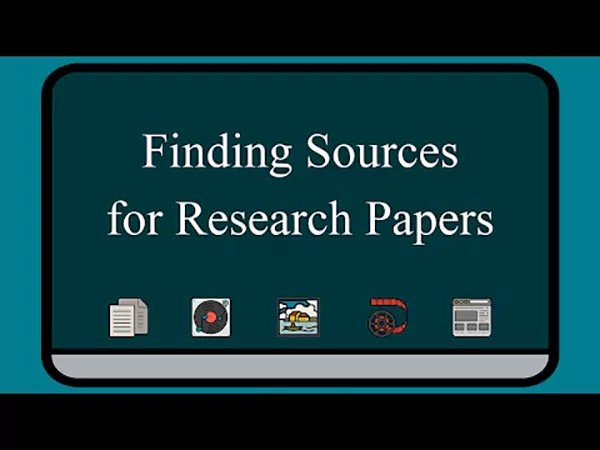
Are you tired of the same old conventional research? Or, not a fan of books for academic research, or, simply willing to break the cycle of monotonous research.
You’re in luck! To escape from labor-intensive and time-consuming inquiries, you can now rely on trending unconventional research practices for extended knowledge and scholarly achievements.
Introducing innovative “Research Hacks”! From exploring a novel subject to deeply engaging in writing a thesis, stepping into unfamiliar territories, breaking the status quo, and bringing forth new ideas or possibilities can accelerate your academic research.
Struggling to find a research technique that works for you? Stress less and read this, “If plan A doesn’t work, the alphabet has 25 more letters” said Claire Cook, an American Writer.
Likewise, we are here with alternative unconventional research techniques you must try. Till then, bookworms can get research papers at EssayHub.
Reasons Supporting Reliance on Unconventional Research: The Importance of Research Skills
Looking for unconventional ways of researching is not like bashing the validity of traditional research papers. They certainly have their place, but it’s just that learners are more influenced by engaging approaches to learning.
Keeping that in mind, here are some reasons in support of your reliance on unconventional methods:
- You Don’t Enjoy the Subject You’re Studying: Maybe because the subject teacher is not doing their job the way they are supposed to.
- Hidden Analytical Skills: Lesser sources mean fewer opportunities to think critically and adapt argumentation skills.
- Lack of Right Resources: Limited access or incomplete information may cause disorientation.
- Finding Difficulty Remembering Facts and Figures.
- Nothing New: No scope for exclusive information like the latest trends, evidence, case studies, etc. leads to a lack of interest.
- Experiencing Low Motivation: Insufficient internal drive to achieve academic goals may feel impossible.
- Too Many Distractions: It’s hard to look at research papers constantly sometimes.
- Absence of Creativity: A monotonous process stops you thinking outside the conventional academic box and being creative.
A Collection of Unconventional Research Hacks

When a usual method does not help, there are still countless ways to research unusually. Keep in mind that “unconventional research hacks” are completely subjective but also spark creativity and innovation. So, they are worth a try.
Here we go…
Online Platforms
Scrolling through websites is a new way of researching. It’s just that you are doing it digitally (instead of turning pages), over browsers or search engines.
What resources will point you toward reliable sources? Here are some of the top examples:
- Google Scholars: Articles, dissertations, books, abstracts, and court opinions.
- JSTOR: Its collection spans 75 disciplines and includes 2,800 journals.
- Google Books: Contains over 40 million books including reference pages.
- Science.gov: Includes over 60 databases and more than 2,200 scientific websites.
- BASE (Bielefeld Academic Search Engine): Provides 240 million documents from more than 8,000 sources.
- Digital Commons Network: Dissertations, book chapters, conference proceedings, and working papers
Even though platforms specializing in assignment writing services help a lot in gathering research materials.
Ethnographic Adventures
Do you learn best by moving, you are a kinesthetic learner. This leads to uncharted realms for researchers. Ethnographic adventure lets you absorb vibrant cultures, and interact with communities, places, and events firsthand for further research, relevant to your research topic.
Infographics
Have you ever come across those super-long or short infographics to grasp the details? Well, researching with infographics is a novel approach since they deliver details accurately and with unnecessary content.
Now the question arises, where can you find them? The answers are Pinterest and social media.
Informational Videos
YouTube in this digital age is like the modern-day encyclopedia. It is because there isn’t anything you can’t know about on YouTube. This can get students diving into their research topic rather than the dreaded research paper.
It may include podcast episodes, interviews, case studies, informative videos, documentaries, etc. on platforms like Netflix, Amazon Prime, and more. There, videos are not likely to be peer-reviewed but can be scholarly.
Radio Shows
Radio shows are yet another unconventional way. It plays a phenomenal part in creating long-form stories and entertainingly delivering journalistic presentations.
Grasping details will require planning and attention to detail, obviously to maintain relevance with the topic.
Info/Image SlideShow or Presentations
Slideshows for presentations are a mix of elements that amuse users. It includes audio, videos, infographics, technology, and so on. For certain topics, you can find some informative presentations or info/image slide shows over the internet.
These are generally created by researchers themselves and play a similar role as study materials do.
Create Associations
Creating associations never fails, in fact, it is a powerful memory aid. So, what happens is when you try creating associations, you experience sensory stimuli that remind you of something else.
For example, you can connect details you are willing to remember with details you already know. This would help you recall the details better.
Gamify Your Learning
Turning studying into a game can make a world of difference. Since conventional research is dull and fails to capture respondents’ true engagement, gamified learning leverages the power of interactive elements.
This will make the data collection more enjoyable. For instance, take part in quizzes, challenges, and surveys to get accurate and insightful data.
Integrate Technology
Modern technologies like AI, VR, AR, ML, etc. are on everyone’s lips. So, why not use them for research? You can use digital tools and apps integrated with VR or AR technologies to make inquiring interactive.
Such techs foster immersive environments and scenarios that can stimulate real-life situations.
Social Media
Who doesn’t know about the power of social media? Social media platforms like Twitter, Instagram, Facebook, etc are great sources for research.
How is this possible? Let’s say your research topic is politics-related, now you can follow politicians to gain insights into their workings, plans, policies, frauds, etc.
Conclusion
Decisively, to breathe new life into your academic papers, exploring unique sources or unconventional research is the solution. Ditching conventional approaches is sometimes worthwhile as you can enjoy exposure.
The act of thinking out the traditional ways and relying on something new yet interesting is referred to as “Guerrilla Research Tactics”.
In essence, with unconventional research practices, you can get your hands on hidden gems of information that can add depth and originality to your academic papers.
Do remember, stepping out of your comfort zone, boldness, and creativity are often rewarded!